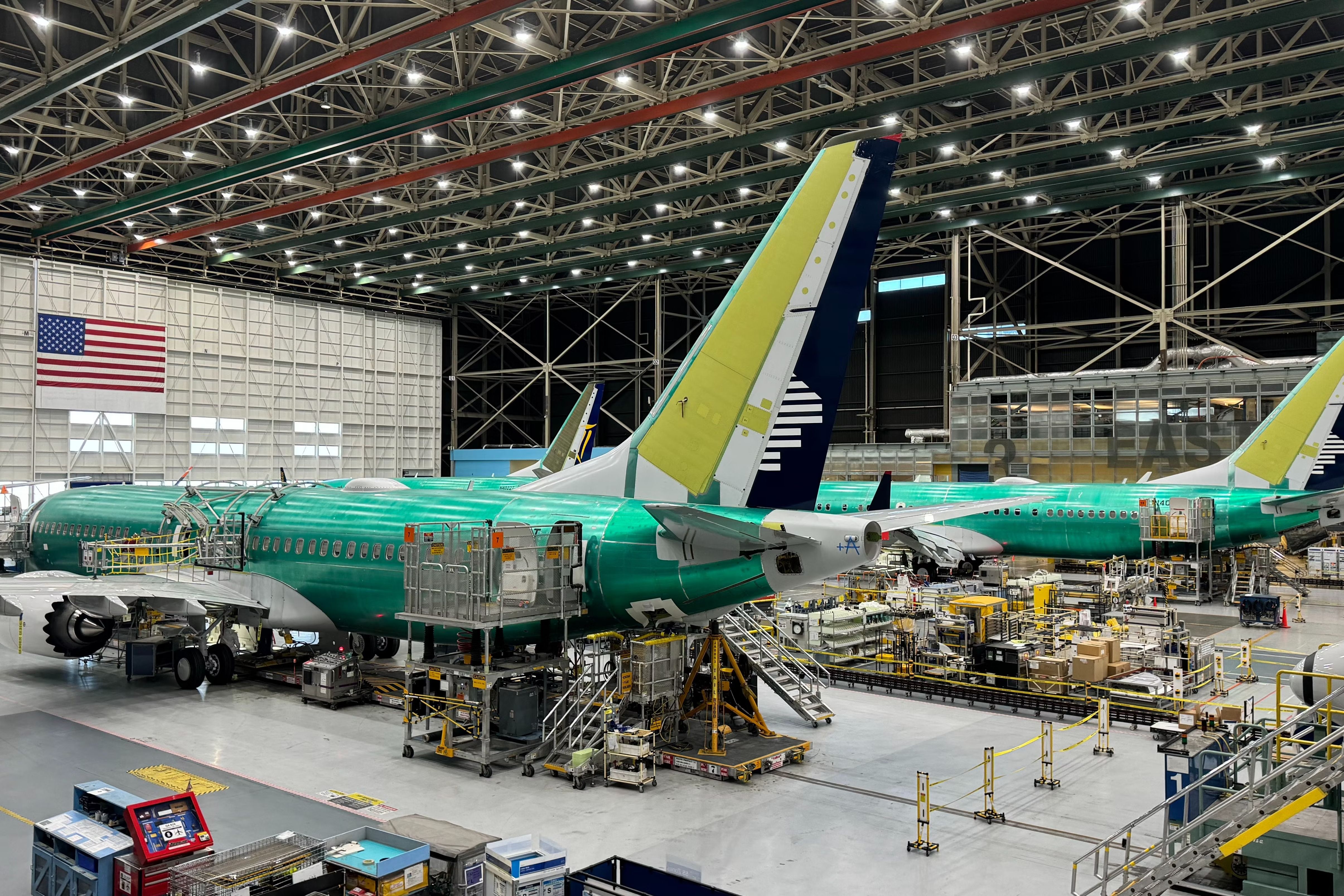There are a million opinions on Boeing and what it should do, but the simple reality today is that 96% of its workforce is on strike, its share price fell nearly 4% on Friday, it has $45 million in net debt and is burning through about $1.5 billion in cash every month. More than 30,000 workers walked out the door on Thursday, just hours after a vote rejected Boeing's offer, and yet it appears the earliest the two parties could get together is Tuesday.
Boeing cannot afford a prolonged strike In the wake of the walkout, Boeing shares fell by 3.69% to a near-two-year low, and its credit ratings are already just one notch above junk status. On Monday, the Wall Street Journal reported that debt-ratings firms are warning a prolonged strike would prompt them to downgrade Boeing's debt, significantly increasing annual interest payments.

Ratings firm Moodys cited cash-flow concerns in placing all of Boeing's credit ratings on review for possible downgrades . Boeing's net debt is more than $45 billion, and the WSJ reported that a credit rating downgrade would add an extra $100 million in annual interest payments on top of the $2 billion in interest paid in the past year. Boeing's trouble just got worse when more than 30,000 employees voted to go on strike from midnight.
On Friday, it was estimated that a 30-day strike could cost Boeing $1.5 billion, whereas the tentative deal's financial impact would have been $900 million annually if it had been passed. On the same day, Boeing chief financial officer Brian West said the company would work on a second offer, although it was initially pleased with the outcome of talks as union leaders unanimously signed off on the first deal.
For all of this year, we have heard how fragile Boeing and Airbus supply chains are and how they impact delivery delays of 737s and A320 family aircraft. An extended stoppage will hurt those suppliers just when they are making progress, particularly the smaller manufacturers, who will have to lay off staff as Boeing orders dry up. Boeing holds billions of dollars of unused inventory, so when the strike started, it told those suppliers to stop sending parts if there was sufficient stock.
The massive job cuts during COVID have already sullied aviation as a career option, so another round of job cuts will just make it more difficult to find staff when production ramps up again. Years of animosity are not easy to overcome After the vote last week, IAM District 751 President Jon Holden alleged that Boeing factory workers had experienced "discriminatory conduct, coercive questioning, unlawful surveillance and had unlawful promises of benefits." He later added that new CEO Kelly Ortberg was in a tough position as a newcomer trying to mitigate years of animosity between the union and Boeing leadership.
This seems to be the heart of this issue, even more so than the gap between Boeing's 25% offer and the worker's demand for 45%, although that is really an apple-and-bananas comparison. What may become intractable is the pent-up anger over 16 years of concessions that have eroded retirement and health benefits and the latest Boeing idea to eliminate annual bonuses. Boeing has hinted that the anticipated 797 Midsize Airplane will be built in Washington as it reaches a labor agreement with employees.
What seems baffling to an outsider (me) is why Boeing and the union have not locked themselves away together since midnight on Thursday and hammered out a deal. Why are they waiting until Tuesday to get together with a federal mediator when the stakes are so high, and the two sides are so far apart? A change in approach is badly needed, but after watching the former Boeing CEO and his colleague stumble through the Senate hearing in June, that may be a step too far. It took years for Boeing to own up to its 737 production issues , and now it needs to own up to putting profits ahead of people for at least a decade and set things right with its most valuable asset, the people who make the planes.
Read the latest Boeing news here. This is not only about what percentage increase either side can get away with, and will not be solved by just cutting a deal in the middle. If Boeing is to regain its reputation and be the company that global aviation needs, then wrongs need to be addressed, and the person who can make that happen is Kelly Ortberg, not a federal mediator running messages from room to room.
.



















